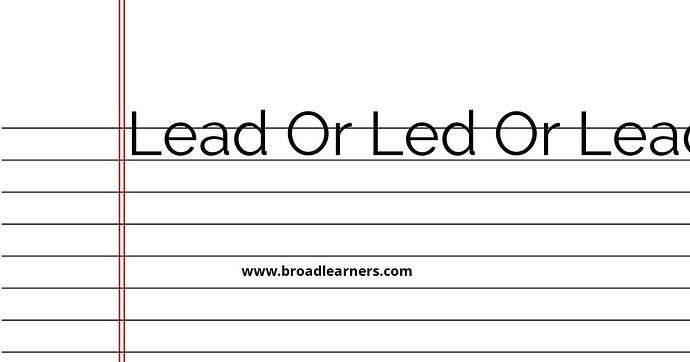'Lead', 'led', and 'lead' are commonly confused words in English grammar. Understanding the difference between 'lead', 'led', and 'lead' is important to use them correctly in written and spoken English.
'Lead' can be a noun or a verb, while 'led' is the past tense of the verb 'lead'. 'Lead' as a noun refers to a soft, heavy, bluish-gray metal, while 'lead' as a verb means to guide or direct someone or something.
Let's take a closer look at the meanings and usage of 'lead', 'led', and 'lead'.
| 'Lead' (noun) | 'Lead' (verb) | 'Led' |
|---|---|---|
| The word 'lead' as a noun refers to a soft, heavy, bluish-gray metal. | The word 'lead' as a verb means to guide or direct someone or something. | 'Led' is the past tense of the verb 'lead'. |
|
|
|
To remember the difference between 'lead', 'led', and 'lead', it can be helpful to remember that 'lead' as a noun refers to a metal, 'lead' as a verb means to guide or direct, and 'led' is the past tense of 'lead'.
Here are some examples of correct usage:
- I need to buy some lead for my fishing weights. (referring to the metal)
- She will lead the project team. (guiding or directing)
- He led the team to victory in the championship game. (past tense of 'lead')
Remembering the correct usage of 'lead', 'led', and 'lead' will improve your grammar and communication skills.
